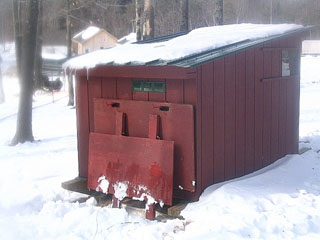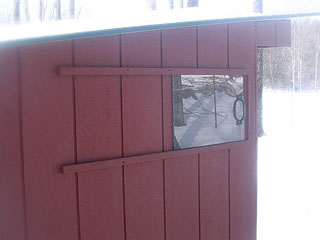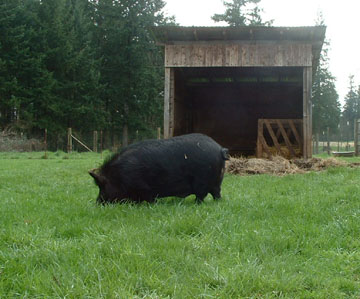It is recommended that at least one good book on keeping pigs is owned by new breeders. There are some drawings on page 138 of a “range house” design in Storey’s Guide to Raising Pigs, which shows a portable shelter with specific dimensions built on skids. Since Guinea Hogs are smaller than commercial pigs, the size can be scaled down to your own needs; just measure the width of your gates and give yourself at least several inches of clearance on each side to determine the best width of your personal Range House.



Inside an AGHA Members Built Shelter

One of AGHA’s members built something like this in a 4′ x 6′ size for their Guinea Hogs, using a metal roof insulated with styrene and a door with a rubber flap facing away from prevailing winds during their extreme winters. Their portable shelters also have windows, and the rubber door flap is removed and faced into prevailing winds during hot weather. In winter the portable shelters are placed close to power and water, and in summer moved further out into pastures. They also keep “sorting boards” on the back of each shelter for easy access, and another board that they use to close the house up completely so the hog and house can be moved all at once.
Some pig owners use “calf huts” or Quonsets for their smaller breeds of pigs, which work well year round for shelter. After having a look at what others are using, you can likely create something home-made and cobbled together with what you have on hand, or you can build something extravagant should you feel so inclined.
